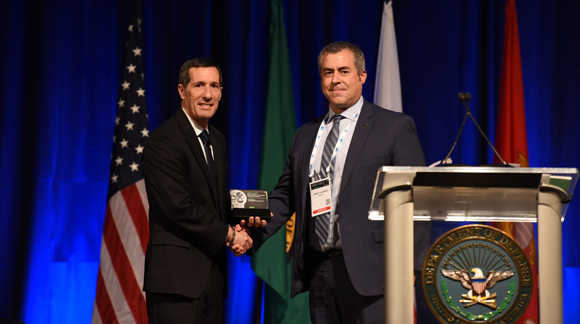MELD Manufacturing receives People’s Choice Award at DOD Maintenance Symposium
April 2, 2020

MELD Manufacturing Corporation, headquartered in Christiansburg, Virginia, USA, received the People’s Choice Award at the DOD Maintenance Symposium for the Maintenance Innovation Challenge, which took place in Spokane, Washington, USA. MELD recently conducted a training and use evaluation exercise in which soldiers were introduced to MELD equipment, trained, and successfully repaired or additively manufactured parts in the same day.
Finalists of the Maintenance Innovation Challenge were selected from eighty award nominations by the Joint Technology Exchange Group (JTEG) which is made up of principles representing each service. Nanci Hardwick, CEO of MELD Manufacturing Corporation, presented an overview of defence and commercial maintenance and repair uses of the innovative MELD® process, including aluminium part manufacturing and repair for the C-130J aircraft, repair of cast magnesium helicopter parts, and large ship components.
Hardwick also highlighted the process’s ability to use off-the-shelf metals and match part materials in repair, as well as the ability to repair very large parts in an open air environment. “What makes MELD a compelling asset for MRO is that the same machine can repair parts that are worn, cracked, or have ballistics damage and also print new parts. With its simplicity and ease of use it is a powerful tool,” she stated.
The National Center for Manufacturing Sciences (NCMS), of which MELD Manufacturing Corporation is a member, stated, “Based on the strength of presentation and applicability to critical maintenance and sustainment needs, NCMS Member MELD Manufacturing Corporation has taken the People’s Choice Award. Their submission, A Novel Solid-State Technology for Sustainment, addresses the need for the warfighter to make critical repairs in the field or at sea. The MELD process is a solid–state additive technology enabling the repair of otherwise unrepairable assets due to the part’s/component’s inherent material limitations.”
















